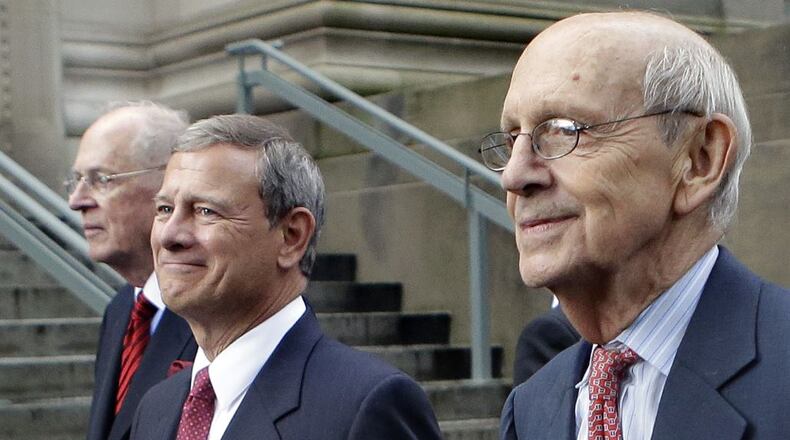Upon taking the bench, Justice Stephen Breyer estimates the U.S. Supreme Court had only two or three cases on its docket involving the intersection of U.S. law and the laws of foreign nations. Now, that number has increased to 15 to 20.
“That’s because of changes in the world,” Breyer said in a recent interview with The Atlanta Journal-Constitution. “Not only in fields like commercial law but also human rights law. There are also the problems that have come up with terrorism, which is an international problem that sometimes conflicts with human rights.”
Breyer, who became a U.S. Supreme Court justice in 1994, will discuss this evolution on Saturday as the opening-night speaker at the Marcus Jewish Community Center of Atlanta's annual book festival.
The 79-year-old jurist will appear with Gail Evans, an author and a former CNN executive vice president. They will discuss how the high court must consider contentious cases far beyond U.S. borders, as well as Breyer’s most recent book: “The Court and the World: American Law and the New Global Realities.”
In the book, published in 2015, Breyer said he believes there is an ever-growing need for U.S. courts to develop an understanding of, and working relationships with, foreign courts and legal institutions.
“I want to show people that there are many, many different topics in which judges, to resolve the question of American law properly, have to know something about what goes on abroad,” Breyer told the AJC.
In “The Court and the World,” Breyer provides examples of cases involving national security, human rights law, treaties and international commerce.
“In the commercial area, we have international cases involving securities law, very interesting cases involving copyrights, which involve trillions of dollars in commerce,” Breyer said. “Amazing. That never would have been true 50, 100 years ago.”
The U.S. courts don’t have to follow what foreign courts do, Breyer said. But since World War II more and more countries have become interested in democracy and protecting human rights, he said.
“So, if there are other countries that have judges like ours and documents like ours and problems like ours, sometimes, not always, but sometimes you can learn something by how they handle their problems,” Breyer said. “You don’t have to follow it, but you can learn sometimes what to do and what not to do.”
Breyer said he also wants to educate the public on how the highest court in the nation works.
“It’s a black hole for many,” he said. “Sometimes they think, ‘Oh, they’re these wise people.’ We’re not necessarily superior in wisdom. We’re human beings. And our job is to apply law in situations where it’s often very difficult to do because good judges in lower courts have come to different conclusions on the same question. I want people to see how the Constitution is applied and why there are differences of opinion.”
Breyer, appointed to the court by President Bill Clinton, said he still loves his job.
“It requires you to do your best and give what you have in every case really — they do matter,” he said. “As you get older you discover that’s a challenge and interesting and a privilege.”
About the Author
The Latest
Featured



